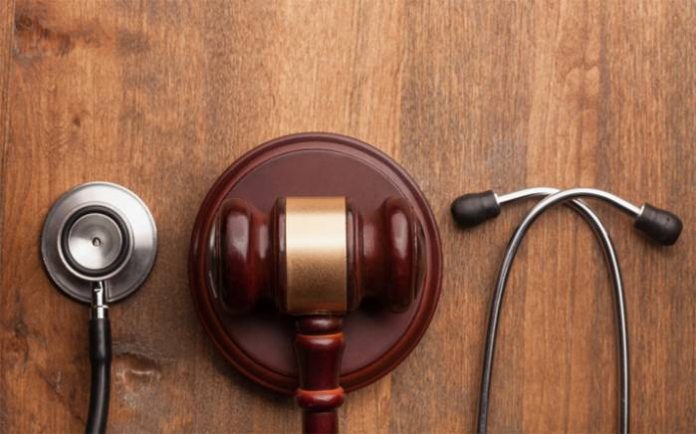A personal injury means that an injury has occurred to you physically, emotionally, and/or mentally as opposed to damages (injury) to your property. For instance, if you are involved in an automobile accident and sustain a laceration to your head or damage to your spinal cord, it is considered personal injury.

Personal injury may not always mean there is physical damage to your body; it may mean that you were emotionally or mentally injured as well. For instance, you may experience extreme anxiety or depression at the mere thought of getting in a vehicle because you are so fearful of another accident occurring.
Different Types of Personal Injury
When you are involved in an accident, there are three primary problems that may appear following the accident:
- Physical body harm-Bodily harm basically means that you have been physically injured in some way. For instance, you sustained broken bones, a laceration, spinal damage, brain damage and etc.
- Emotional distress-This type of injury is one of the most difficult to “prove” because there are no physical injuries. Emotional distress may include a wide range of issues, such as anxiety, depression, insomnia, post-traumatic stress disorder, or other issues that cause you emotional/mental anguish.
- Pain and suffering-This type of injury is sometimes difficult to prove because the “injuries” may not be visually seen by others. It may include issues such as not being able to participate in activities that you previously enjoyed, but it may also extend to situations such as being financially unable to support yourself and your family as a result of the accident.
Common Causes of Personal Injury
There are many different types of personal injuries. Whether the injury is physical, mental or emotional, an injury can occur from different sources, including:
- Automobile accidents-Collisions are the most common causes of a personal injury.
- Slip and fall-A slip and fall injury can occur from a variety of causes, for instance slipping and falling on an icy walkway, slipping on liquid that has been left unattended on a floor, tripping and falling down an unlit staircase, or tripping on an unsecured floor mat.
- Dog bites-This type of injury can occur when you encounter an aggressive dog, whether the owner was aware of the potential risk of their dog behaving aggressively or not.
- Medical malpractice-A personal injury resulting from medical malpractice generally means that a doctor or other healthcare professional has failed to provide the appropriate standard, which resulted in an injury to their patient. For instance, failing to properly treat or recommending the wrong treatment for a diagnosis.
- Workplace accidents-If you are injured while at work, you will generally not be permitted to file a claim for a personal injury against your employer. Instead, you will need to file a worker’s compensation claim. However, if you were injured at work and your employer does not pay worker’s compensation insurance, or they are refusing to accept responsibility for your injuries, you may be able to file a personal injury claim for a workplace injury. The best way to determine which situation you qualify for it is recommended that you talk with the personal injury lawyers at Montoya Hinckley.
Personal Injury and Negligence
In many situations, personal injuries are caused by the actions of another person or business. When you are injured because someone else acted negligently, they are legally responsible for your injuries, and you are entitled to seek compensation for your injuries. In the majority of situations, seeking compensation is generally monetarily. This compensation is typically used to pay for expenses that you incurred as a result of your accident.
A personal injury resulting from negligence basically means that the responsible person was supposed to take the appropriate measures to keep you safe and to act in a way that wouldn’t cause you harm. When they do not abide by this, their recklessness or negligence causes your injuries. For example, if you were injured in an automobile accident that was caused by an intoxicated driver or a distracted driver, your injuries were caused by negligence. Other examples of negligence may include:
- Slipping and falling in a grocery store because management or employees failed to warn you of a potential fall due to a spill and/or the spill wasn’t properly cleaned up.
- You were injured in a motorcycle accident because another driver didn’t use their turn signal when merging into traffic, causing you to be run off of the road or colliding with the vehicle.
- While jogging, you were bitten by a dog that was not on a leash or contained in the owner’s yard.
- You were injured by a distracted driver while you were a pedestrian that was walking across an intersection when it was appropriate for you to cross.
- An injury resulting from medical malpractice may be the result of a physician failing to recognize the symptoms of an illness in a reasonable time, which resulted in serious consequences, possibly death.
Should you Hire an Attorney for a Personal Injury?
If you have been suddenly injured in an accident that was caused by the negligence of another party, you may be entitled to file a claim for compensation for your injuries. In this situation, it is recommended that you consult with a personal injury attorney to discuss your case.
Working with an experienced personal injury attorney means you will have a professional on your side to fight your case. A personal injury attorney can help you win your case and get the best settlement possible for your claim. Compensation can help to cover the existing medical bills resulting from the accident as well as anticipated medical bills for future expenses resulting from the accident.
It is important to keep in mind that filing a personal injury claim may be a lengthy process; however, if you have sustained injuries as a result of someone else’s negligence, it is essential that you contact a personal injury attorney as soon as possible following the accident. It is also important to maintain good records of what happened, any witnesses to the accident, your medical records, and records of the time you lost at work. Before accepting an offer from insurance companies, contact your personal attorney.






































